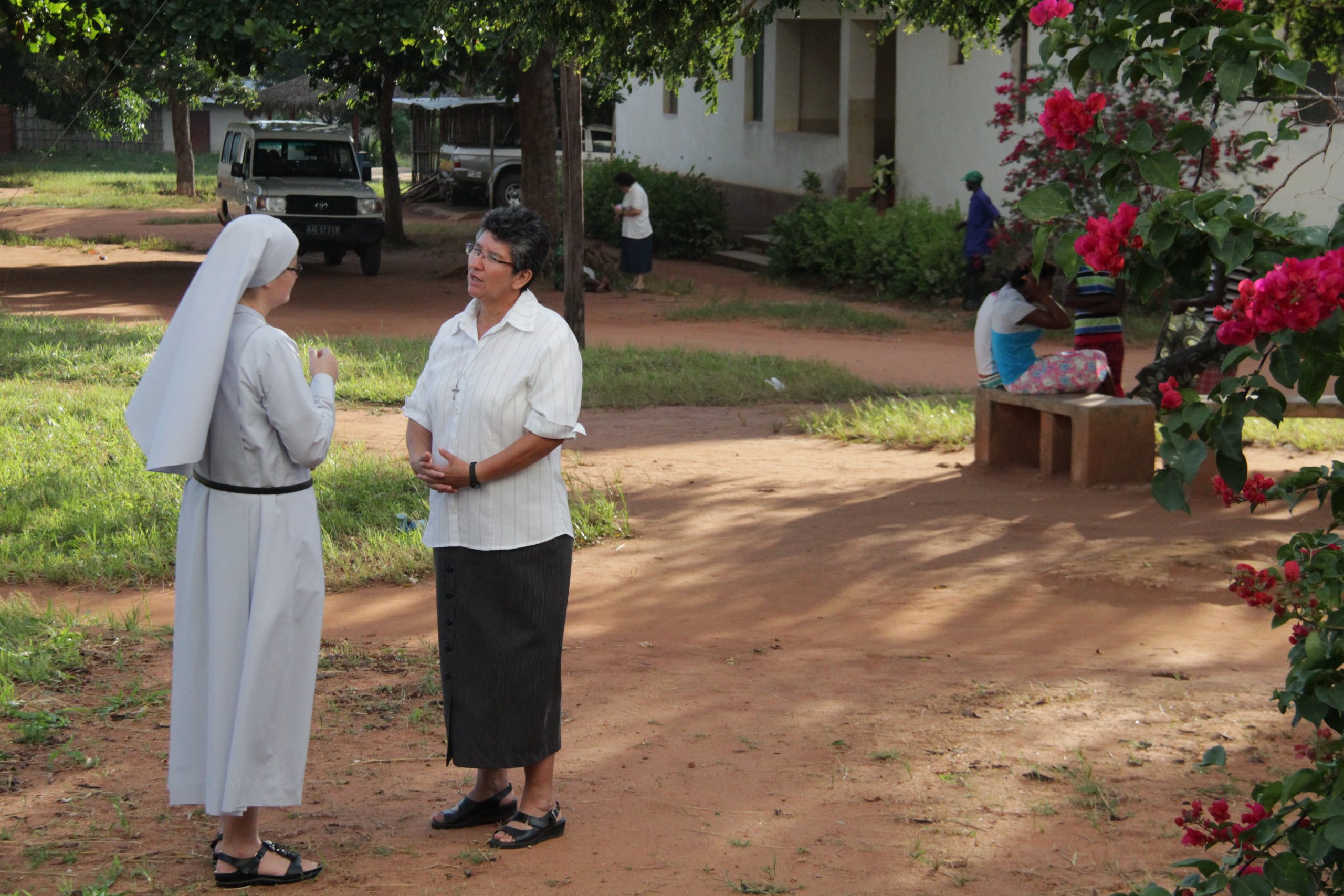At the end of May terrorist groups launched a merciless attack on the town of Macomia, in the province of Cabo Delgado, in northeast Mozambique, an area rich in oil and natural gas. The Theresian Carmelite Sisters of Saint Joseph have been present in Macomia for 16 years now and do important work in the field of education. Having fled earlier, they returned a few days after the attack and have now related what they saw. Aid to the Church in Need which has supported the sisters in the past and which visited their community in 2015, has expressed its alarm and concern at what has happened.
Apparently, the attack began in the early morning of 28 May. “It was fierce, cruel and lasted three days”, reported Sister Blanca Nubia Castaño of the Carmel in Macomia, on her Facebook page. She and the other sisters, who were aware of the danger they were in, had abandoned their central mission station, which includes a school and boarding house, just a few days before the attack.
“For the past two and a half years”, Sister Blanca writes, the Macomia region and indeed the whole of the province of Cabo Delgado, have been “terrorised” by the savage attacks of these armed jihadist groups, whose motives, according to some experts, may have something to do with the discovery of rich submarine deposits of natural gas just off the coast of the province. The operations of the terrorists have intensified since the beginning of this year, and they are sowing terror among the population, burning towns and villages and attacking civilians on the roads or those travelling by public transport.
On Thursday, 4 June the sisters decided to return to Macomia to assess the extent of the damage done by the terrorists, “even though the danger had by no means receded.” But they were hoping, “at the very least to be able to visit (our) employees and their families and help them and give them new courage.”
According to Sister Blanca Nubia Castaño, the destruction was violent. “As a result of this barbarism, the town centre was completely destroyed, the majority of the administrative infrastructure was damaged and the commercial and shopping centre was reduced to ashes.”
Quite apart from the material destruction, what is still unknown is the number of human victims. “We still don’t know the number of civilian victims or those of the security forces. On 3 June people slowly began to return to their homes, some of which had been burnt, while others had been looted… You may remember that it was only a year ago that we suffered the destructive force of Cyclone Kenneth…”. This was the tropical cyclone that particularly affected the province of Cabo Delgado, causing widespread destruction.
Fortunately for the Theresian Carmelite Sisters, their mission of Saint Joseph was spared during the attack, seemingly only because it was situated somewhat outside the area attacked by the terrorists. “Our mission was saved because it is situated in the hills, close to a military base.” For their own security, however, the sisters had to leave again that same day and return to the mission where they had taken refuge, since it was not safe for them to stay in Macomia.
Since the end of 2017, the violence in the region has claimed the lives of over 1,100 people, including 700 civilian victims, according to the Armed Conflict Location and Event Data Project (ACLED). The violence has also caused the displacement of some 200,000 people since the end of 2017, according to UN data. According to the same sources, this new attack on the town of Macomia, which was already sheltering some 30,000 refugees before the attack, has now occasioned yet another exodus.
During his Easter Sunday Urbi et Orbi message in April, the Holy Father himself mentioned this little-known crisis, bringing it to world attention.
In 2015 a delegation from ACN International had visited the Carmelite sisters in Macomia and also funded a vehicle for their pastoral work. “I am deeply saddened by the situation in Macomia, and especially so since I personally met with the Carmelite sisters during my most recent visit to Mozambique”, said Rafael D’Aquí, who heads the charity’s international desk for projects in Mozambique. He had been particularly impressed by the work of these sisters, since “their commitment extends not only to the boarding school they run but also to the entire population in the surrounding área.” In addition to looking after the pupils in their care they also help the families and the teachers themselves. At the same time, they run a healthcare programme, especially helping young mothers learning to breastfeed and providing basic primary health care for their babies as well.





